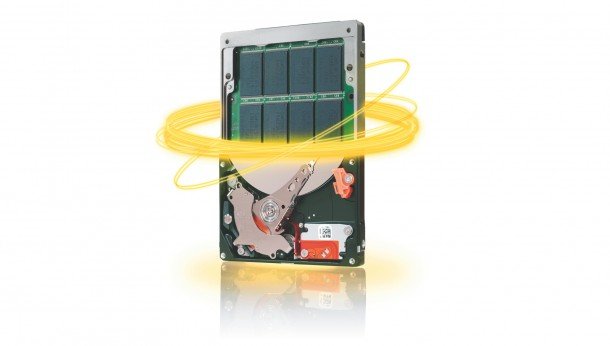SSDs win: Seagate to cease production of performance 2.5-inch HDDs

In the age old battle of mechanical vs. digital it seems that SSDs have finally won. Or at least that's what it looks like on the surface.
Seagate, it was recently reported , will be stopping production of the performance end of its 2.5-inch HDD range at the end of the year. The 7,200RPM drives were once the pinnacle of notebook storage and were the drives of choice for most gaming laptops of the last few years - but no more.
Declining prices on decent capacity SSDs has meant more and more solid state drives are being dropped into gaming machines, as well as even standard mid-range laptops. That means the pricier 7,200RPM spinning platter drives have become an unnecessary extravagance for mechanical storage, with the cheaper 5,400RPM HDDs taken up the slower/higher-capacity mobile storage slack.
Seagate, purveyors of hard drives, don't have any consumer-class solid state drives at the moment, so they've been suffering right at the top of the performance stack. What Seagate do have, however, is the Momentus XT hybrid drive technology, a mixture of spinning mechanical platters and a healthy chunk of Flash memory used as cache within the drive itself. The benefit of these SSHDs is the fact they can have close to the same sort of performance as a traditional SSD, but with the higher storage capacity of spinning platters. Seagate is set to launch the third generation of this SSHD technology later this year and it is thought that the removal of its highest performing 2.5-inch mechanical hard drives will act as a stimulus to move their customers towards the hybrid storage instead.
But will even this manoeuvre leave Seagate behind the curve? We've quickly moved to a point where the price/performance sweetspot of the SSD market is the 256GB arena, and those drives are only going to get cheaper as we go forward. Surely it won't be too long before the 512GB SSDs are suddenly within the price range of our more modest wallets, and that sort of capacity and performance is going to be tough for even the hybrid drives to match.
The biggest gaming news, reviews and hardware deals
Keep up to date with the most important stories and the best deals, as picked by the PC Gamer team.

Dave has been gaming since the days of Zaxxon and Lady Bug on the Colecovision, and code books for the Commodore Vic 20 (Death Race 2000!). He built his first gaming PC at the tender age of 16, and finally finished bug-fixing the Cyrix-based system around a year later. When he dropped it out of the window. He first started writing for Official PlayStation Magazine and Xbox World many decades ago, then moved onto PC Format full-time, then PC Gamer, TechRadar, and T3 among others. Now he's back, writing about the nightmarish graphics card market, CPUs with more cores than sense, gaming laptops hotter than the sun, and SSDs more capacious than a Cybertruck.

